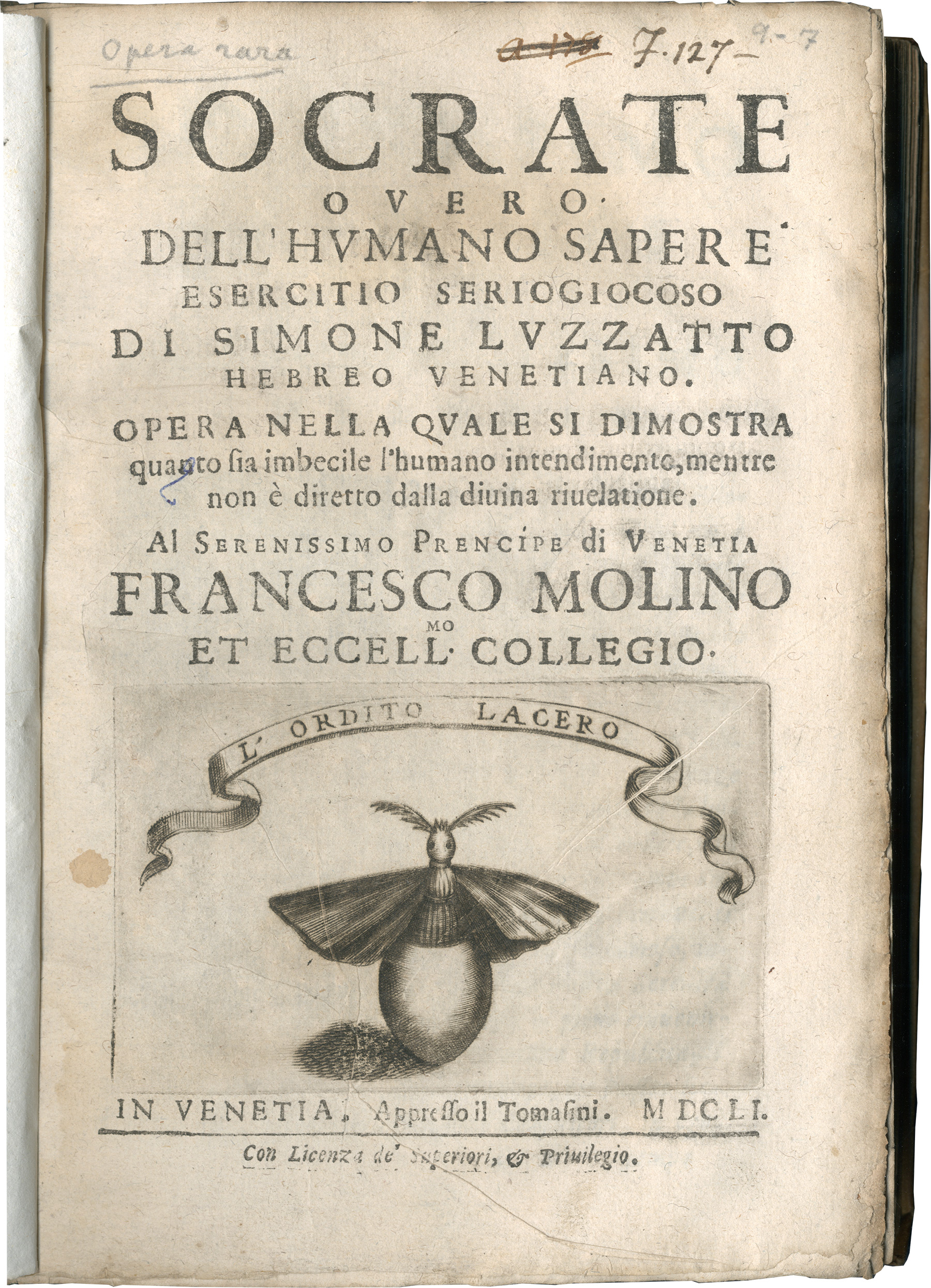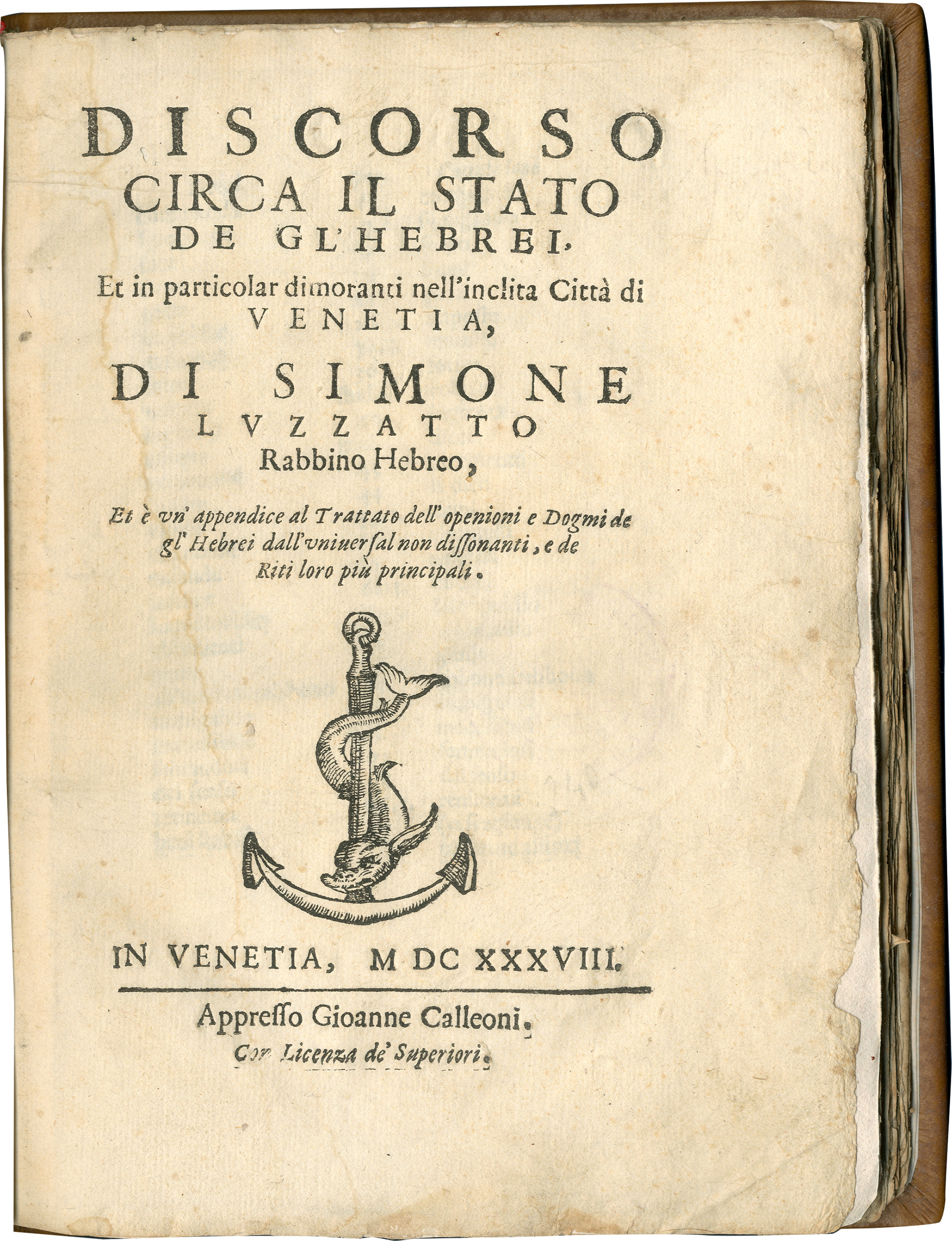Simone Luzzatto’s Discorso circa il stato de gl’Hebrei et in particolar dimoranti nell’inclita città di Venetia (Discourse concerning the Condition of the Jews, and in Particular Those Residing in the Illustrious City of Venice) appeared in 1638, in the aftermath of allegations about Jewish involvement in the bribery of the Venetian judiciary. The work was addressed to the Venetian authorities and is one of the first political treatises written by a Jewish author in the Italian vernacular. The Discorsoadumbrates a number of themes discussed in Luzzatto’s other major work the Socrate, overo dell’humano sapere (Socrates; or, About Human Knowledge, 1651), a fictive dialogue among various ancient Greek philosophical figures on a variety of topics related to human knowledge. It attests to the author’s exposure to Italian Humanism and the Greek legacy. It also reflects Luzzatto’s deep engagement with diverse streams of early modern political thought, particularly Niccolò Machiavelli’s thinking and the reason-of-state tradition. The work is informed by Luzzatto’s concern with the foundations and features of a strong economy and the contribution of the Jewish community to Venetian trade. As such, it encapsulates a set of insights relevant to current debates on the interface of religious or ethnic diversity and economic growth.
Which exhibit?
Page: Featured item
Order on exhibit page
14
Turn off the details link on the exhibit page
Off

